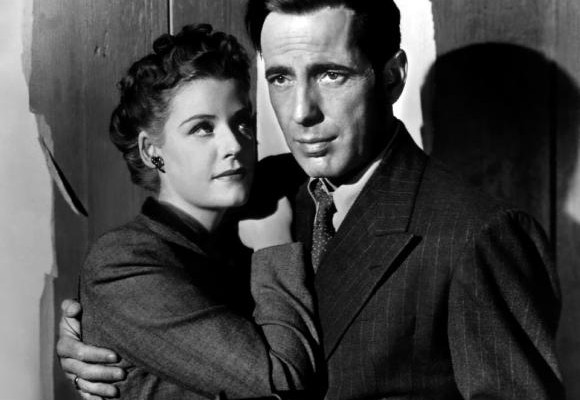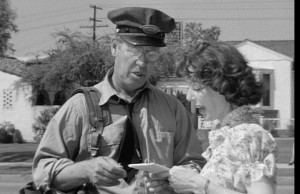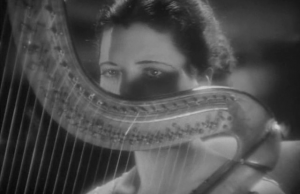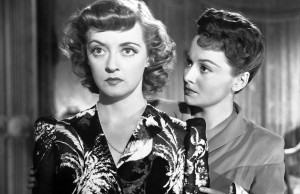All Through the Night (1941)

 |
All Through the Night (1941)
 Run time: 107 min Run time: 107 min Rating: 7.0 Rating: 7.0 Genres: Action | Comedy | Crime Genres: Action | Comedy | Crime Director: Vincent Sherman Director: Vincent Sherman Writers: Leonard Spigelgass, Edwin Gilbert Writers: Leonard Spigelgass, Edwin Gilbert Stars: Humphrey Bogart, Conrad Veidt, Kaaren Verne Stars: Humphrey Bogart, Conrad Veidt, Kaaren Verne |
| Storyline Broadway gambler Gloves Donahue wants to find who killed the baker of his favorite cheesecake. He sees nightclub singer Leda Hamilton leaving the bakery. When her boss Marty’s partner Joe is murdered, Leda and her accompanist Pepi disappear. It turns out that beneath all the mystery is a gang of Nazi operatives planning to blow up a battleship in New York harbor. Written by Ed Stephan <stephan@cc.wwu.edu> |
|
| Details: Release Date: 2 December 1941 (USA) |
|
| Box Office Budget: $750,000 (estimated) |
|
| [youtube]http://youtu.be/32J0fOAUnvw[/youtube] | |










Vincent Sherman’s "All Through the Night" has a feeling of a B picture, although probably was not intended to be that way. This 1942 Warner Bros. film is much more enjoyable than we suspected, because even though the film was supposed to tackle a serious problem, it has a lot of fun moments that make the film much lighter in tone than perhaps the film makers intended.
At the center of the story we find ‘Gloves’ Donahue, a small time gangster and his crew. They are a fun group that are drawn into an international spy story right in their own backyard. Ma Donahue comes to ask her son’s assistance in trying to solve the murder of her baker neighbor, and the fun and games begin in full force.
There are a lot of good moments in the film, but it is dominated by Humphrey Bogart who runs away with the picture. His crew is also a great asset to the film, Frank McHugh, a fantastic actor, no matter in what picture is excellent, as well as William Demarest, one of the best character actors in the movies of that era. A much slender Jackie Gleason puts in an appearance as Starchy, a member of Donahue’s team.
The heavies are amazing. Conrad Veidt is wonderful as the Nazi spy trying to blow up a ship in New York’s harbor. Mr. Veidt was such an elegant figure in everything he did. Judith Anderson is seen as the mysterious assistant to Mr. Veidt’s character. Ms. Anderson had a way about her that she dominates the scenes in which she appears. Peter Lorre does a lot with his small piano player, Pepi.
The film never ceases to entertain. Thanks to Mr. Humphrey and the wonderful cast assembled for the movie, it will not disappoint anyone with an open eye for a lighter take on a serious matter.
When I was a kid a local station had a package of films from the 30’s and 40’s it would run constantly. My young friends and I developed 6-8 favorites we would all congregate together to watch- everything in the neighborhood stopped for Errol Flynn, (Charge of the Light Brigade, The Sea Hawk, Santa Fe Trail, They Died With Their Boots On, Gentleman Jim, Objective Burma), or Abbott and Costello, (Buck Privates, A&C meet Et Al). The one Humphrey Bogart feature that I remember from this package is All Through the Night. I saw him in this years before Casablanca, The Maltese Falcon and the many other classics he was in.
I got my first chance to look at it in perhaps 40 years recently. It’s a strange film in many ways, but still entertaining and a significant part of the Bogart film legacy even if it’s far from a classic. We think the great stars just went from one classic to another because that’s all we see but just as with modern stars, they made many movies like this between them that also rely on their appeal and mostly fulfill their assignment of entertaining the viewer. Those films should not be forgotten.
This film suffered from ill timing, taking a semi-comic spin on the Nazi threat only to be released just after Pearl Harbor. It must have been about as funny under those circumstances as Ishtar would have been on September 12th. As so many reviewers have commented it unites the Bowery Boys strain of humor, (by way of Damon Runyan) with a Fifth column plot such as we see in the same year’s Saboteur, (both films make reference to the burning of the Normadie without actually naming it and say their set of villains was responsible). The Nazis seems to have seen Bogart’s previous gangster flicks and consider him a dangerous criminal, (You’re just like us…), but the film takes pains to depict him only as a gambler whose biggest vice is that he doesn’t mind liberating out of town gamblers from their bankrolls with a crooked deck. He credits his skill with firearms to days he spent at Coney Island.
One interesting aspect is the reference to the Dachau concentration camp. I had thought the concentration camps were just rumored until they were liberated after the war. Maybe their true nature was not known until then. The heroine’s father is supposed to have died of ‘natural causes’ there, if that’s possible in such an unnatural place. This is surely the only time Dachau was ever mentioned in a film with any kind of comedic element.
The film is a mother lode of noted character actors and soon to be famous comics, including these future TV icons, Jackie ‘C’ Gleason and Phil Silvers. It has the pace of a ‘B’ but the length of and ‘A’ film. Towards the end you can’t believe how much has happened and presume the film must have lasted 3 hours. Some of the dialog is corny but most of it is funny. Frank McHugh gets stuck on his wedding night hanging out with William Demarest and complains about it. Bill tells him ‘I can cook!’ Maybe he was looking forward to cooking for the Douglases on My Three Sons.
I was pleased to see how many reviewers noted the similarities in the plot of this and North by Northwest, with the auction scene and the police being led to the headquarters of the fifth columnists only to find nothing of interest. Always borrow from the best- or at least the pretty good, such as this.
All Through the Night was started almost the day after the Pearl Harbor attack and rushed as fast as Warner Brothers could get it out to the movie going public. It's a curiosity today, but for different reasons.
Humphrey Bogart is one of those characters who straddles between the legal and illegal. When his mom, Jane Darwell, asks him to find out what happened to her baker of German ancestry, Bogey starts his own investigation. Along the way the partner of Barton MacLane who is a rival of Bogey's, gets murdered and now the police are looking for him as well as MacLane's mob.
But Bogey persists and finds a nasty nest of Nazi fifth columnists using an antique auction as a cover.
I've often wondered whether films like All Through the Night weren't a double edged sword in terms of propaganda. For audiences in 1942 I suppose it was good to see an All-American hero like Humphrey Bogart besting the Germans. Yet the Germans in so many of these films are portrayed as incredibly stupid, I do wonder if a whole lot of our draftees didn't go in the armed services with some bad pre-conceived notions.
But All Through the Night does have is an incredible cast of some of the finest character actors ever assembled. The Germans are played by Conrad Veidt, Judith Anderson, and Peter Lorre and they play it completely straight. They'd have to or the film wouldn't work on any level. Kaaren Verne is the heroine who the Nazis are using to entice Bogey, she's working for them because she believes this will save her father still in the fatherland.
Bogey has such people working for him as William Demarest, Frank McHugh, Wallace Ford, Jackie Gleason and Phil Silvers. With Gleason and Silvers who were pretty far down on the cast list, you had two people who would make their major breakthroughs in the next decade in television. Add this entire cast up and it's pretty impressive, all these wonderful movie people doing their own particular shtick at the top of their game.
For that reason All Through the Night should be seen and enjoyed even if you might wince at the over the top propaganda.
Bogart was in good form as a racketeer, who comes up against Nazi spies, headed by Conrad Veidt, Peter Lorre, and Judith Anderson, and prefers patriotism to the profits of crime…
Several things seriously frightened the film’s success… It was released very shortly after the bombing of Pearl Harbor, a bad time for portraying a quasi-realistic spy tale in a laughable manner…
The film also suffered from an overt case of "cuteness" in its dialog, with such lines as ‘ Say, there’s more here than meets the FBI.,’ being uttered all too frequently by Bogart and his comic retinue which included Frank McHugh, William Demarest, Jackie Gleason, and Phil Silvers…
Another weak point in the film was completely unbelievable "cliffhanger" ending which found Veidt driving a speedboat loaded with explosives toward a battleship…
In spite of these minor irritants, the film did give Bogart a chance to do some very creditable comedy work and on the whole it still entertains…